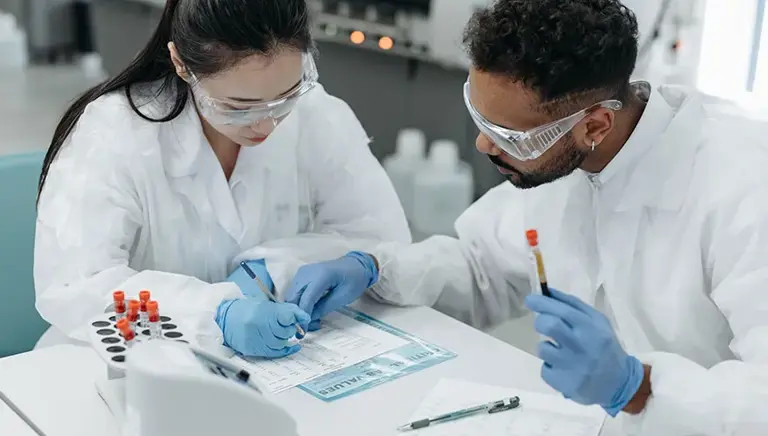UK life science industry sets out priorities for the Budget
The Association of the British Pharmaceutical Industry (ABPI) has set out the measures the UK’s life sciences industry wants to see in Chancellor Jeremy Hunt’s Budget on Wednesday, 6 March [1].
In his 2023 Autumn Statement, the Chancellor recognised the high potential of UK life sciences to deliver the jobs and growth the country needs, announcing a record package of support, including a £520 million funding boost for manufacturing and moving to make permanent the full expensing capital allowances model [2].
While these necessary measures will help promote long-term investment into the UK, the ABPI believes that in the face of fierce global competition, there is more the Chancellor can do to support British life science leadership and ensure the UK continues to be a destination for launching innovative medicines.
The ABPI has set out four key areas where the Budget could boost UK life science success:
- enhance the UK’s long-term tax and fiscal offer to global and domestic companies
- increase public investment in the power of innovative medicines
- deliver the new Life Sciences Investment Programme effectively
- ensure a globally competitive regulatory system that supports innovation and research
Richard Torbett, Chief Executive of the ABPI, said: “The UK’s life sciences industry continues to be one of the country’s highest potential growth sectors. If we get the policy environment right, we can transform NHS health outcomes while boosting British scientific research and reinvigorating medicines manufacturing in this country.”
The measures set out in the ABPI’s budget submission and expanded on below, build on those in the ABPI’s Manifesto for Investment, Health and Growth. Taken together, they can create a virtuous cycle, where investment in medicines and research accelerates future waves of innovation and attracts an increased UK share of global research and development (R&D).
Enhance the UK’s long-term tax and fiscal offer to global and domestic companies
Pharmaceutical manufacturing alone is responsible for £16.4 billion in GVA to the UK economy each year. By delivering a supportive policy and operating environment for medicines manufacturing, the UK could attract £15 billion worth of investment and create and additional 26,500 jobs over the next ten years [3].
Recognising the increasing intensity of capital expenditure not just in manufacturing, but in pharmaceutical R&D too, as well as the benefits investment in physical infrastructure brings in anchoring future activity and investment – the ABPI is calling on the government to expand eligible expenditure for R&D tax credits. Also important will be to broaden the scope of qualifying expenditure under the ‘Full Expensing’ model beyond qualifying plant and machinery to a wider subset of strategically valuable capital investments.
Increase public investment in the power of innovative medicines
Research by PwC has shown that if the UK increased use across just four types of medicines (DOACs for stroke prevention SGLT2 inhibitors for Type 2 diabetes, severe asthma biologics and vasopressin V2-receptor antagonists for kidney disease) in the NICE-recommended eligible patient population, this would deliver 429,000 additional years of life in good health for UK patients and £17.9 billion in productivity gains for the UK economy [4].
This is why the ABPI want the government to monitor the exception mechanism in the 2024 Voluntary scheme of medicine Pricing, Access and Growth (VPAG) to ensure that implementation of the new approach to managing the affordability of branded medicines does not jeopardise the UK’s ability to attract new launches and maintain healthy supply resilience for existing medicines.
The government should also follow through on NICE’s expert recommendation and lower the discount rate used in medicines evaluations to better reflect the longer-term benefits of medicines, particularly curative treatments.
Lowering the discount rate from the current 3.5 per cent to the NICE-recommended level of 1.5 per cent would mean the value medicines bring to patients is better recognised in NICE assessments, increasing the chance of patients getting access to new medicines on the NHS, such as cell and gene therapies.
Deliver the new Life Sciences Investment Programme effectively
As part of the VPAG negotiation, the industry agreed to fund a first of its kind £400 million Investment Programme to supercharge and supplement existing government initiatives in clinical trials, sustainable manufacturing and Health Technology Assessment. Effectively targeting funding towards additional measures, rather than used to subsidise existing plans, will be vital to the success of the fund and the growth it can leverage.
Ensure a globally competitive regulatory system that supports innovation
Increasing recruitment to industry clinical trials could unlock up to £3.5 billion of income for the NHS over five years, including up to £678 million in cost savings from medicines and treatments provided free by companies through clinical trials.
The regulatory environment is critical to unlocking growth and attracting and retaining inward investment. Therefore, regulators must provide a globally competitive approval system that is both proportionate and committed to ensuring patient safety while also being attractive to inward investment and industry (R&D) .
The government must give the Medicine and healthcare products Regulatory Agency (MHRA) the resources it needs to become a world-leading regulator. Capacity at the MHRA is currently a significant issue that limits the regulator’s ability to offer customers a predictable and quality service.
The government must also keep to their commitment to fully implementing the recommendations from the Chief Scientific Advisor’s ‘Pro-Innovation of Technologies’ review and the ‘Commercial Clinical Trials in the UK’ review led by Lord O’Shaughnessy.
Finally, priority support should be given to existing initiatives such as AI and Regulatory Science and Innovation Networks, where there is potential for the UK to develop a genuinely world-leading offer for industry.
- Budget
- ABPI Manifesto
- ABPI Manifesto (1)
- Health and Access to Medicines
- Life Sciences
- Politics
Last modified: 21 February 2024
Last reviewed: 21 February 2024

